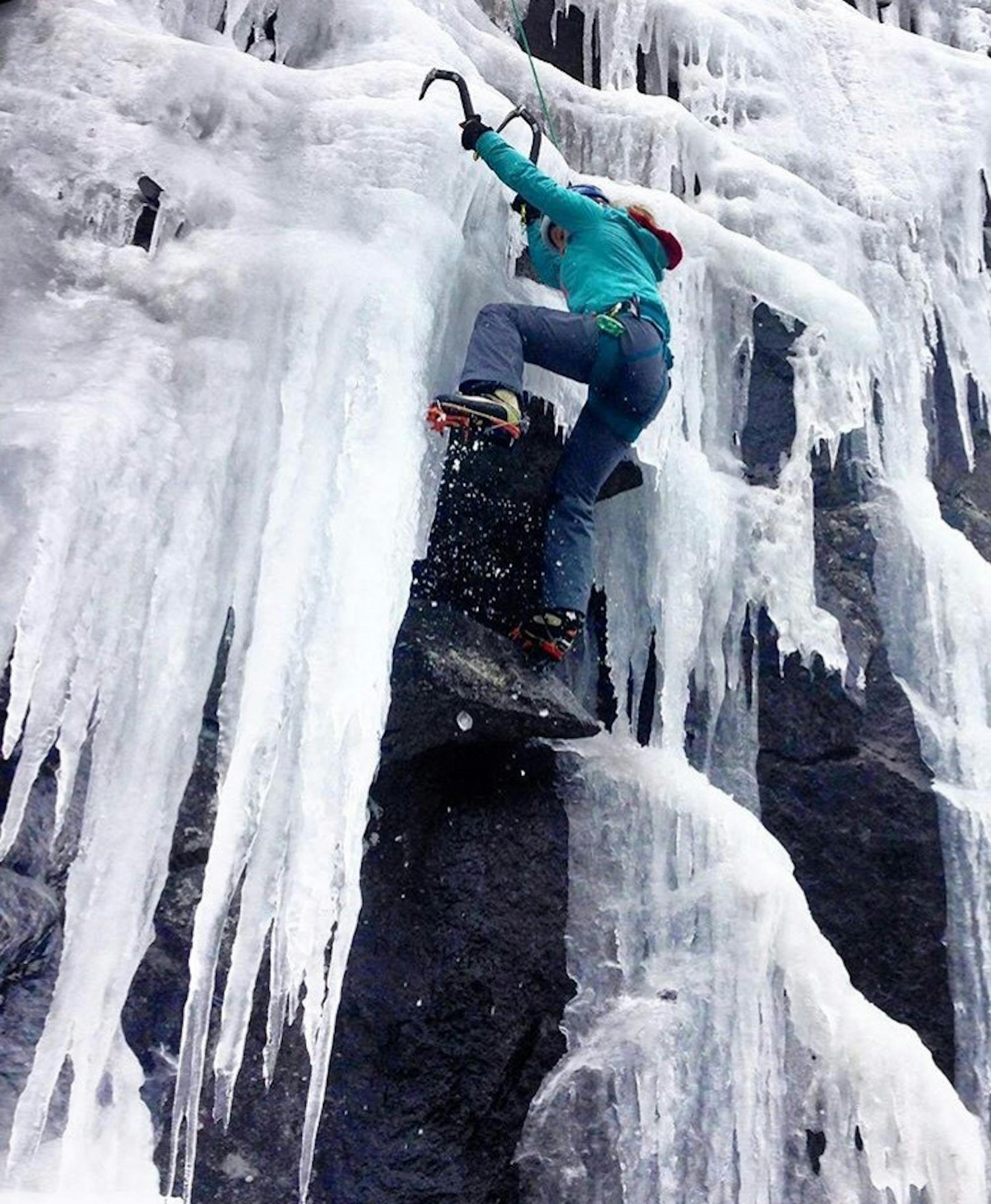Grace Scott ’22 comes to Dartmouth with more than 10 years of climbing and bouldering experience and a long history of success in both. Scott, a Rhode Island native, has been to the Bouldering Youth National Championships eight times and has rock climbed competitively throughout that time frame as well. Recently, she began trying winter climbing, including ice climbing and mountaineering and climbed Mount Rainier, the 17th-tallest mountain in the United States and the tallest mountain in Washington State. She spent her past summer in New Hampshire as a climbing guide.
How did you first get involved with bouldering and climbing?
GS: The first time I ever rock climbed, I was 7 years old and I went to a birthday party at my local rock gym. Since then, I sort of never stopped doing it. It was the first sport that I wasn’t really horrible at. I did a few others and didn’t enjoy them that much.
What has your training been like as a competitive climber?
GS: Training can be pretty intense when you’re a competitive climber. I did a climbing team back home for roughly 10 years. The training is structured around the competition schedule. I was always much more into fall climbing, which was bouldering season, than I was into the summer sport climbing season.
What made bouldering more enticing to you than other climbing disciplines?
GS: Part of it was the structure of the competitions. In sport climbing, if you fall, you don’t get to get back up on the wall, but in bouldering you get another turn. Also, the style of climbing required for bouldering suited me better.
How would you describe your climbing style?
GS: For bouldering, I tend to climb statically and make moves that require a lot of strength rather than technique. For sport climbing, the moves are less difficult individually. But they require a lot more endurance, which has never been my strength.
What has your experience been like at the Bouldering Youth National Championships and with competitive climbing in general?
GS: I went to the [Bouldering Youth National Championships] eight times and climbed competitively for 10 years. I did it for a long time, but I thought competing was somewhat arbitrary. Since last year, I’ve started to move away from climbing competitively and have focused more on climbing outside.
What do you enjoy about climbing outdoors?
GS: I just love that it lends itself more to traveling and adventuring, which takes up a lot of time too but doesn’t carry the stress of competitive climbing. The style is also different; in outdoor climbing, you use natural protection that you put in the rock.
What has your experience been like climbing outdoors for Dartmouth?
GS: Since coming here, I’ve basically gone climbing every weekend, and it’s been a great time. Dartmouth has a great outdoor climbing community. It’s super supportive, and there are so many opportunities to get outside in New Hampshire and to travel further.
Have you used any of Dartmouth’s indoor climbing facilities, the Jonathan B. Daniels ’86 Memorial Climbing Gym?
GS: I have, and it’s a great facility to train in. For basically any kind of climbing you want to do, you can find a way to train for it in that gym. Even though it’s small, it’s well curated for what you want to do in terms of training.
Are you on an official climbing team for Dartmouth?
GS: I’m not for this term. I’ve been training independently and climbing outside for now. I’m trying to get away from competing because I did it for so long and wasn’t always fulfilled by it.
How do you plan to continue with climbing in the next four years?
GS: The school has amazing resources for its mountaineers and climbers. There are a few grants you can apply for to do expeditions, and I look forward to applying for those in future years and hopefully getting some funding for bigger adventures.
Which specific grants would you consider applying for?
GS: They offer a few different types of grants, ranging from hundreds of dollars to thousands of dollars. I want to go to Alaska and do something big, like climbing the Ruth Gorge. I think that’d be really cool.
Have you had any memorable climbs since getting to campus?
GS: I loved going to Pickle Dish last weekend. It’s close to campus by the [Dartmouth Skiway], so I got a ride there and it only took about 15 minutes. I’d never been there before; other spots I’ve been to since coming here I’d already climbed before. I thought it was really cool to explore this little piece of granite that’s so close to campus.
Did you factor in the outdoors aspect of Dartmouth when choosing your college?
GS: Climbing was definitely something I considered when deciding to come here because we’re in the presence of so much granite. There’s a reason it’s in the “Alma Mater” so much; it’s amazing and so abundant here. I’ve climbed a lot in New Hampshire before coming here, and I wanted to be able to continue to climb somewhere I was familiar with. I basically only looked at schools in Vermont, New Hampshire and Maine. It was the natural setting that was the draw.
This interview has been edited and condensed for clarity and length.




